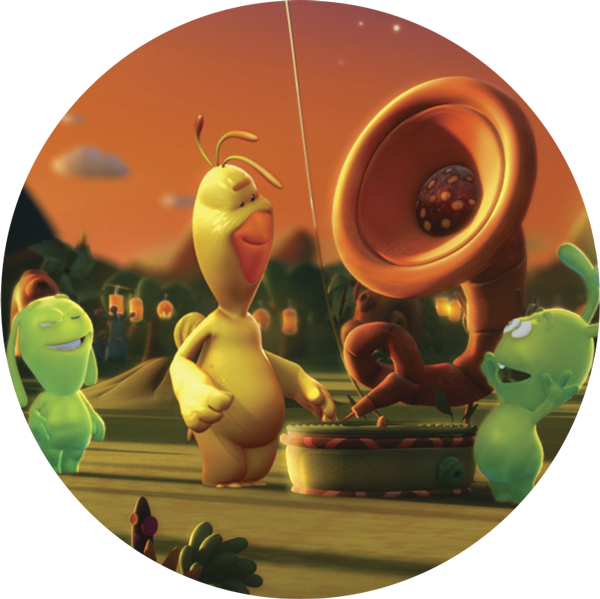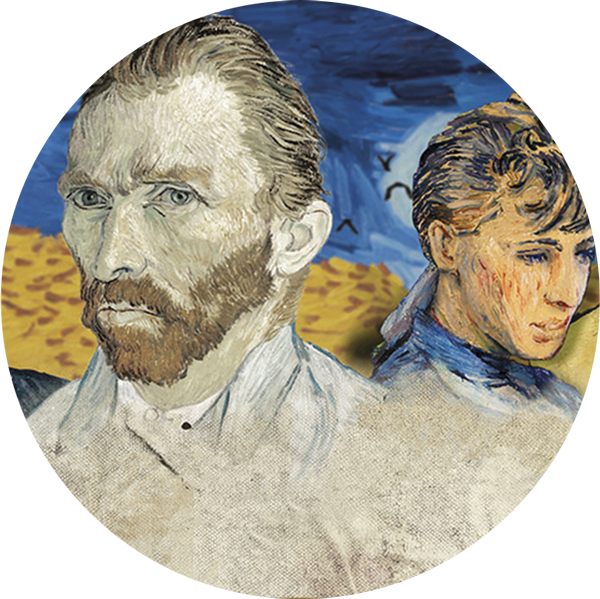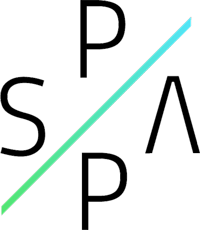
In 2018, the Polish animation industry consists of more than 30 active studios and has been steadily growing since 2010 thanks to support from the country’s main financier of animated content, the Polish Film Institute (PFI).
Key public subsidies
The PFI is the first port of call for any Polish producer seeking funding for an animated project. It has an annual budget of around €20m, just under a quarter of which is dedicated to the development and production of TV series and films aimed at children and young people.
Public subsidies such as local films funds, rather than direct support from broadcasters, are the most common sources of financing for animation producers in Poland. The PFI received a boost in 2018 when the Polish government approved a 30% cash rebate for qualifying production expenses in Poland, with a budget of around €50m. The aim of the incentive scheme is to stimulate the Polish audiovisual industry, strengthen the local production sector and attract valuable foreign productions.
Local and international collaboration
The local animation industry is linked together by the Polish Animation Producers Association’s (SPPA), which promotes Polish animation domestically and abroad at industry events. Coproductions between Polish producers are common, as the PFI prefers to invest in programming in which a Polish company is a majority coproducer.
Service work accounts for a sizeable chunk of most Polish animation studios’ activities, with work coming in for local producers from countries such as the UK, US, Scandinavia, Germany and India for animated series, shorts and commercials for both traditional broadcasters on online platforms such as YouTube.
However, the country’s long history in animation – the industry celebrated its 70th anniversary in 2017 – has provided a strong platform for a new generation of producers to develop their own IP.
Local producers feel the Polish animation industry is justifiably recognised as an important part of the country’s audiovisual sector. This has been helped by the handful of animated series originating out of Poland in recent years to have secured distribution on the international market, such as Agi Bagi.
Original IP development
Certain local broadcasters have played a part in this, with public broadcaster TVP regularly stepping in to provide 5-10% of an animated TV series’ budget as a coproduction partner. Meanwhile, privately-owned channels such as TV Puls are identified as a potentially strong investor in animated programming in future. The Polish government announced plans in 2017 to reform the law around how public broadcasters are funded, with the hope being that this would mean more funding. Polish producers are considering lobbying local broadcasters to commit more funding to original content for children as a result.
More animated series are currently being produced in Poland than ever before, as artistically talented companies target high-quality projects with commercial and international appeal. Overall, there are better tools available to finance animated TV series in Poland, meaning most producers focus on developing these as opposed to features. Securing theatrical distribution for animated features in Poland remains a challenge, as local distributors tend to prefer the major US and Western European releases that dominate the Polish box office.
However, one of the country’s biggest success stories in animation in recent years has been the Oscar-nominated independent feature film Loving Vincent (2017), the world’s first oil-painted feature animation, which was co-financed by the PFI. This has been followed by the award-winning Polish-Spanish feature Another Day of Life (2018).
The acclaim generated from projects such as these, coupled with the introduction of a cash rebate for animation, should ensure the Polish animation industry continues its upward trajectory in future.

In 2018, the Polish animation industry consists of more than 30 active studios and has been steadily growing since 2010 thanks to support from the country’s main financier of animated content, the Polish Film Institute (PFI).
Key public subsidies
The PFI is the first port of call for any Polish producer seeking funding for an animated project. It has an annual budget of around €20m, just under a quarter of which is dedicated to the development and production of TV series and films aimed at children and young people.
Public subsidies such as local films funds, rather than direct support from broadcasters, are the most common sources of financing for animation producers in Poland. The PFI received a boost in 2018 when the Polish government approved a 30% cash rebate for qualifying production expenses in Poland, with a budget of around €50m. The aim of the incentive scheme is to stimulate the Polish audiovisual industry, strengthen the local production sector and attract valuable foreign productions.
Local and international collaboration
The local animation industry is linked together by the Polish Animation Producers Association’s (SPPA), which promotes Polish animation domestically and abroad at industry events. Coproductions between Polish producers are common, as the PFI prefers to invest in programming in which a Polish company is a majority coproducer.
Service work accounts for a sizeable chunk of most Polish animation studios’ activities, with work coming in for local producers from countries such as the UK, US, Scandinavia, Germany and India for animated series, shorts and commercials for both traditional broadcasters on online platforms such as YouTube.
However, the country’s long history in animation – the industry celebrated its 70th anniversary in 2017 – has provided a strong platform for a new generation of producers to develop their own IP.
Local producers feel the Polish animation industry is justifiably recognised as an important part of the country’s audiovisual sector. This has been helped by the handful of animated series originating out of Poland in recent years to have secured distribution on the international market, such as Agi Bagi.
Original IP development
Certain local broadcasters have played a part in this, with public broadcaster TVP regularly stepping in to provide 5-10% of an animated TV series’ budget as a coproduction partner. Meanwhile, privately-owned channels such as TV Puls are identified as a potentially strong investor in animated programming in future. The Polish government announced plans in 2017 to reform the law around how public broadcasters are funded, with the hope being that this would mean more funding. Polish producers are considering lobbying local broadcasters to commit more funding to original content for children as a result.
More animated series are currently being produced in Poland than ever before, as artistically talented companies target high-quality projects with commercial and international appeal. Overall, there are better tools available to finance animated TV series in Poland, meaning most producers focus on developing these as opposed to features. Securing theatrical distribution for animated features in Poland remains a challenge, as local distributors tend to prefer the major US and Western European releases that dominate the Polish box office.
However, one of the country’s biggest success stories in animation in recent years has been the Oscar-nominated independent feature film Loving Vincent (2017), the world’s first oil-painted feature animation, which was co-financed by the PFI. This has been followed by the award-winning Polish-Spanish feature Another Day of Life (2018).
The acclaim generated from projects such as these, coupled with the introduction of a cash rebate for animation, should ensure the Polish animation industry continues its upward trajectory in future.

SPPA
The Polish Animation Producers Association’s (SPPA) main objective is to unite animation producers with a view to promoting a positive and attractive image of Polish animated films in Poland and abroad with a special focus on contemporary animation. This involves the integration of animated film producers circle, arranging support to Polish producers of animated films in order to obtain foreign coproducers and distributors, supporting young and talented filmmakers, promoting animated films for children and youth, as well as bringing up and educating future animation viewers. Producers involved in SPPA cooperate with major governmental institutions and other organizations connected with cinematography in Poland and abroad.
President: Robert Jaszczurowski


 Animation in Poland
Animation in Poland